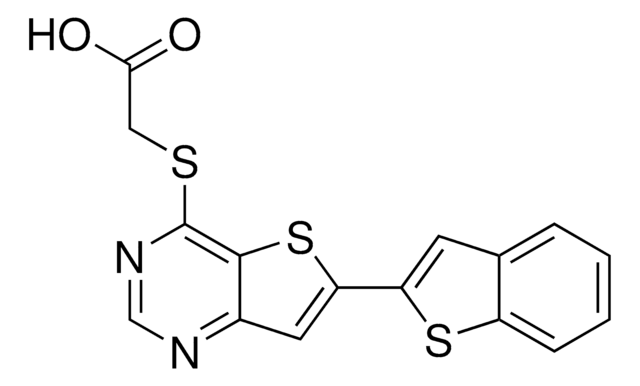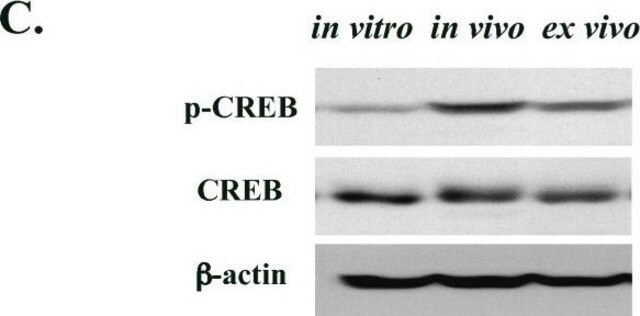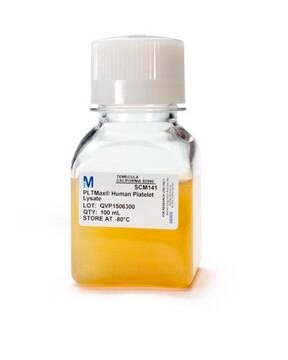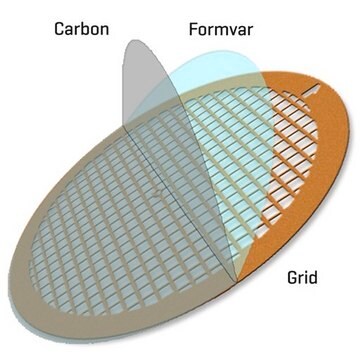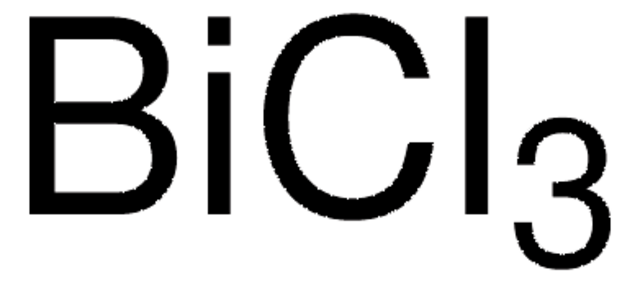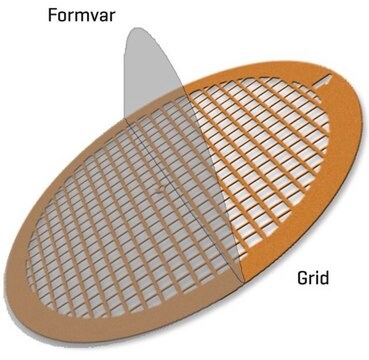추천 제품
생물학적 소스
rabbit
Quality Level
항체 형태
purified immunoglobulin
항체 생산 유형
primary antibodies
클론
polyclonal
종 반응성
human, frog, fish, mouse
제조업체/상표
Chemicon®
기술
immunocytochemistry: suitable
immunofluorescence: suitable
immunohistochemistry: suitable (paraffin)
immunoprecipitation (IP): suitable
western blot: suitable
NCBI 수납 번호
UniProt 수납 번호
배송 상태
wet ice
타겟 번역 후 변형
unmodified
유전자 정보
human ... LHX1(3975)
특이성
Recognizes LIM-1. This antibody does not appear to cross react with LIM-5 (the closest homologue of LIM-1 in frog) on tissue sections but does cross react with LIM-5 in Western blot and immunoprecipitation.
면역원
C-terminal portion of frog LIM-1 protein.
애플리케이션
Anti-LIM-1 Antibody detects level of LIM-1 & has been published & validated for use in IF, IP, WB, IC, IH(P).
Immunohistochemistry: 1:200-1:1,000 (Fish and whole mounts 1:500) Recommended fixative MEMFA.
Our photo was produced from immersion fixation of chicken embryos in cold 4% PFA for 15-30 minutes, then sectioning was performed on a cryostat.
Works on paraffin embedded sections when sections are either lightly PFA fixed or fixed with acetone, ethanol or fixative suggested below.
SUGGESTED IMMUNOHISTOCHEMISTRY PROTOCOL FOR AB3200
The best fixative is MEMFA. 10X stock solution for MEMFA: 1 M MOPS, 20 MM EGTA. 10 mM MgSO4, 38% Formaldehyde. Fixation 1 hour, 2 x 15 min methanol. Following this protocol embryos may be stored in methanol at -20°C indefinitely or immediately embedded in paraplast. Best results on paraffin sections 6-10 micron thick.2) Staining following deparaffinization in xylene and a row of alcohol wash two times in water. Block in 2% Boehringer Mannheim reagent in 0.1 M maleic acid, pH 7.5, 150 mM NaCl for one hour at room temperature.3) Dilute the AB3200 in same blocking reagent and incubate overnight at 4°C or for at least 5 hours. Wash three times in PBS, 10 min each.4) Incubate with alkaline phosphatase conjugated secondary antibody (for example Chemicon Catalog Number AP132A. Develop with BCIP/TNBT (Chemicon Catalog Number ES007-100ML).5) For sections always use Digene silanated slides or Superfrost plus from Fisher as some times you may need to boil sections in 6 M urea for 5-6 min. in microwave at 80% power following deparaffinization to increase signal. That is especially useful if tissues were fixed in PFA.6) Sometimes it is necessary to predeplete antibody on hyperfixed embryos to lower background (especially for staining species other than frog and for whole-mounts). Procedure: hyperfix frog or fish embryos in MEMFA for 36-48 hours at RT 30-50 embryos. Wash 2 X in methanol (see above). Apply antibody in final dilution in blocking reagent for one hour on rocking table. Collect super and apply to your embryos or sections. For whole mounts use the following procedure: after fixation, methanol and PBS; block in PBST + serum (PBS + 2 mg/mL BSA + 0.1% Triton X100 + 10% animal serum) one hour room temperature. Add first antibody in PBST + serum and incubate over night at 4°C. Wash in PBST (no serum) 4 times for 2 hours. Add secondary diluted in PBST + serum over night at 4°C. Wash in PBST four times for 2 hours. Develop staining.
Do not use tissues fixed overnight in PFA the antibody will not work.
Immunocytochemistry: 1:500 on P19 cell line, lightly fixed (2% PFA) 5-15 minutes, permeabilized with 0.1% triton X-100 or methanol ( 5′ air dry).
Western blot: 1:3,000-1:6,000
Immunoprecipitation: 1:200
Immunofluorescence 1:100
Optimal working dilutions must be determined by the end user.
Our photo was produced from immersion fixation of chicken embryos in cold 4% PFA for 15-30 minutes, then sectioning was performed on a cryostat.
Works on paraffin embedded sections when sections are either lightly PFA fixed or fixed with acetone, ethanol or fixative suggested below.
SUGGESTED IMMUNOHISTOCHEMISTRY PROTOCOL FOR AB3200
The best fixative is MEMFA. 10X stock solution for MEMFA: 1 M MOPS, 20 MM EGTA. 10 mM MgSO4, 38% Formaldehyde. Fixation 1 hour, 2 x 15 min methanol. Following this protocol embryos may be stored in methanol at -20°C indefinitely or immediately embedded in paraplast. Best results on paraffin sections 6-10 micron thick.2) Staining following deparaffinization in xylene and a row of alcohol wash two times in water. Block in 2% Boehringer Mannheim reagent in 0.1 M maleic acid, pH 7.5, 150 mM NaCl for one hour at room temperature.3) Dilute the AB3200 in same blocking reagent and incubate overnight at 4°C or for at least 5 hours. Wash three times in PBS, 10 min each.4) Incubate with alkaline phosphatase conjugated secondary antibody (for example Chemicon Catalog Number AP132A. Develop with BCIP/TNBT (Chemicon Catalog Number ES007-100ML).5) For sections always use Digene silanated slides or Superfrost plus from Fisher as some times you may need to boil sections in 6 M urea for 5-6 min. in microwave at 80% power following deparaffinization to increase signal. That is especially useful if tissues were fixed in PFA.6) Sometimes it is necessary to predeplete antibody on hyperfixed embryos to lower background (especially for staining species other than frog and for whole-mounts). Procedure: hyperfix frog or fish embryos in MEMFA for 36-48 hours at RT 30-50 embryos. Wash 2 X in methanol (see above). Apply antibody in final dilution in blocking reagent for one hour on rocking table. Collect super and apply to your embryos or sections. For whole mounts use the following procedure: after fixation, methanol and PBS; block in PBST + serum (PBS + 2 mg/mL BSA + 0.1% Triton X100 + 10% animal serum) one hour room temperature. Add first antibody in PBST + serum and incubate over night at 4°C. Wash in PBST (no serum) 4 times for 2 hours. Add secondary diluted in PBST + serum over night at 4°C. Wash in PBST four times for 2 hours. Develop staining.
Do not use tissues fixed overnight in PFA the antibody will not work.
Immunocytochemistry: 1:500 on P19 cell line, lightly fixed (2% PFA) 5-15 minutes, permeabilized with 0.1% triton X-100 or methanol ( 5′ air dry).
Western blot: 1:3,000-1:6,000
Immunoprecipitation: 1:200
Immunofluorescence 1:100
Optimal working dilutions must be determined by the end user.
Research Category
Neuroscience
Neuroscience
Research Sub Category
Developmental Neuroscience
Neuronal & Glial Markers
Developmental Neuroscience
Neuronal & Glial Markers
물리적 형태
Format: Purified
Purified immunoglobulin
저장 및 안정성
Maintain at 2-8°C in undiluted aliquots for up to 6 months.
법적 정보
CHEMICON is a registered trademark of Merck KGaA, Darmstadt, Germany
면책조항
Unless otherwise stated in our catalog or other company documentation accompanying the product(s), our products are intended for research use only and are not to be used for any other purpose, which includes but is not limited to, unauthorized commercial uses, in vitro diagnostic uses, ex vivo or in vivo therapeutic uses or any type of consumption or application to humans or animals.
적합한 제품을 찾을 수 없으신가요?
당사의 제품 선택기 도구.을(를) 시도해 보세요.
Storage Class Code
10 - Combustible liquids
WGK
WGK 2
Flash Point (°F)
Not applicable
Flash Point (°C)
Not applicable
시험 성적서(COA)
제품의 로트/배치 번호를 입력하여 시험 성적서(COA)을 검색하십시오. 로트 및 배치 번호는 제품 라벨에 있는 ‘로트’ 또는 ‘배치’라는 용어 뒤에서 찾을 수 있습니다.
Identification of self-replicating multipotent progenitors in the embryonic nervous system by high Notch activity and Hes5 expression.
Onur Basak,Verdon Taylor
The European Journal of Neuroscience null
Dario Acampora et al.
Mechanisms of development, 126(10), 882-897 (2009-07-21)
Genetic and embryological experiments demonstrated that the visceral endoderm (VE) is essential for positioning the primitive streak at one pole of the embryo and head morphogenesis through antagonism of the Wnt and Nodal signaling pathways. The transcription factor Otx2 is
Palmitate-activated astrocytes via serine palmitoyltransferase increase BACE1 in primary neurons by sphingomyelinases.
Li Liu,Rebecca Martin,Christina Chan
Neurobiology of Aging null
A A Karavanov et al.
The International journal of developmental biology, 40(2), 453-461 (1996-04-01)
Polyclonal antibodies to Xlim-1 homeodomain protein of Xenopus laevis were used to study the developmental expression pattern of this protein in Xenopus, rat and mouse. Western blotting of embryo extracts injected with different Xlim-1 constructs confirmed the specificity of the
The sonic hedgehog signaling pathway is reactivated in human renal cell carcinoma and plays orchestral role in tumor growth.
Dormoy, V; Danilin, S; Lindner, V; Thomas, L; Rothhut, S; Coquard, C; Helwig, JJ; Jacqmin et al.
Molecular Cancer null
자사의 과학자팀은 생명 과학, 재료 과학, 화학 합성, 크로마토그래피, 분석 및 기타 많은 영역을 포함한 모든 과학 분야에 경험이 있습니다..
고객지원팀으로 연락바랍니다.
